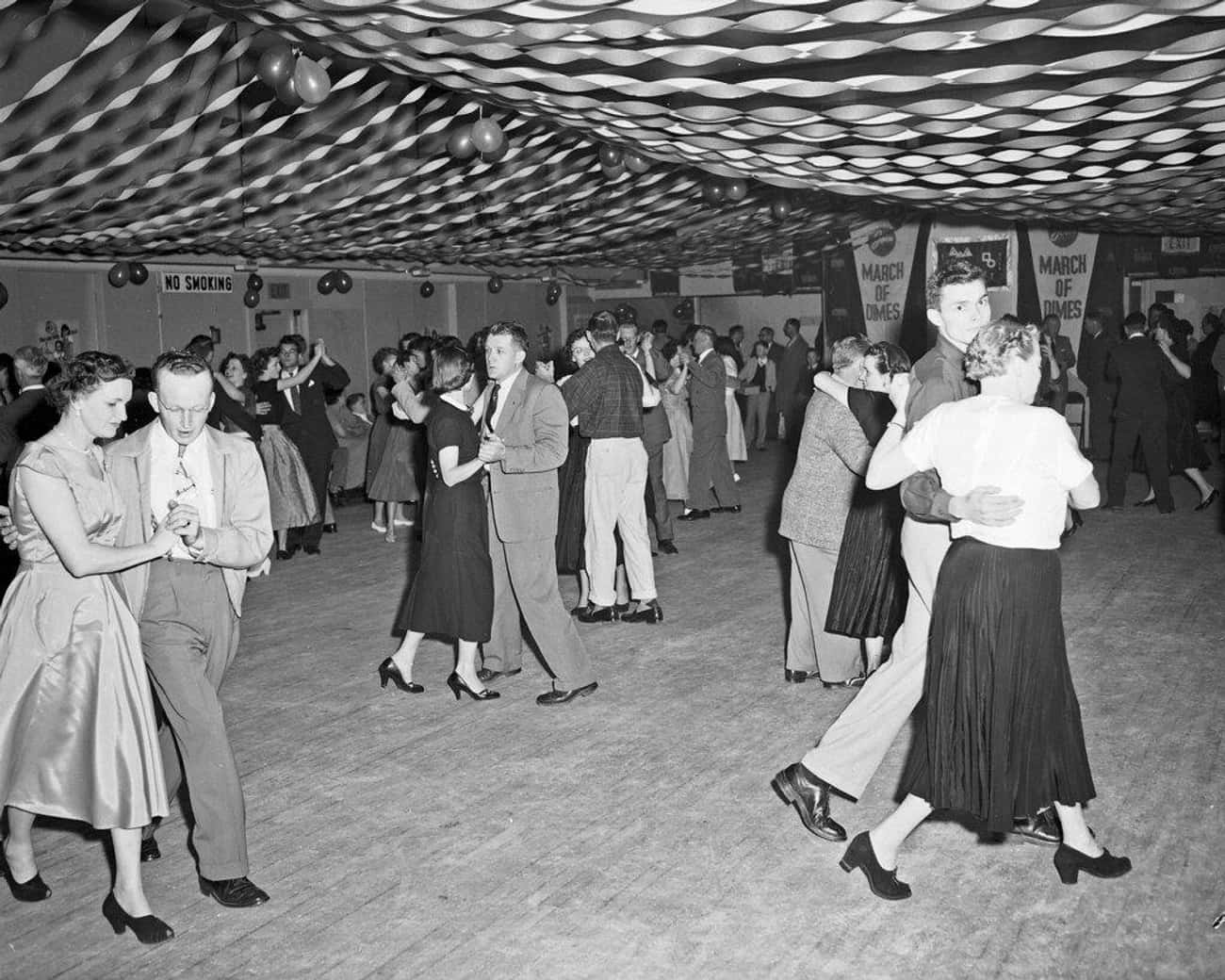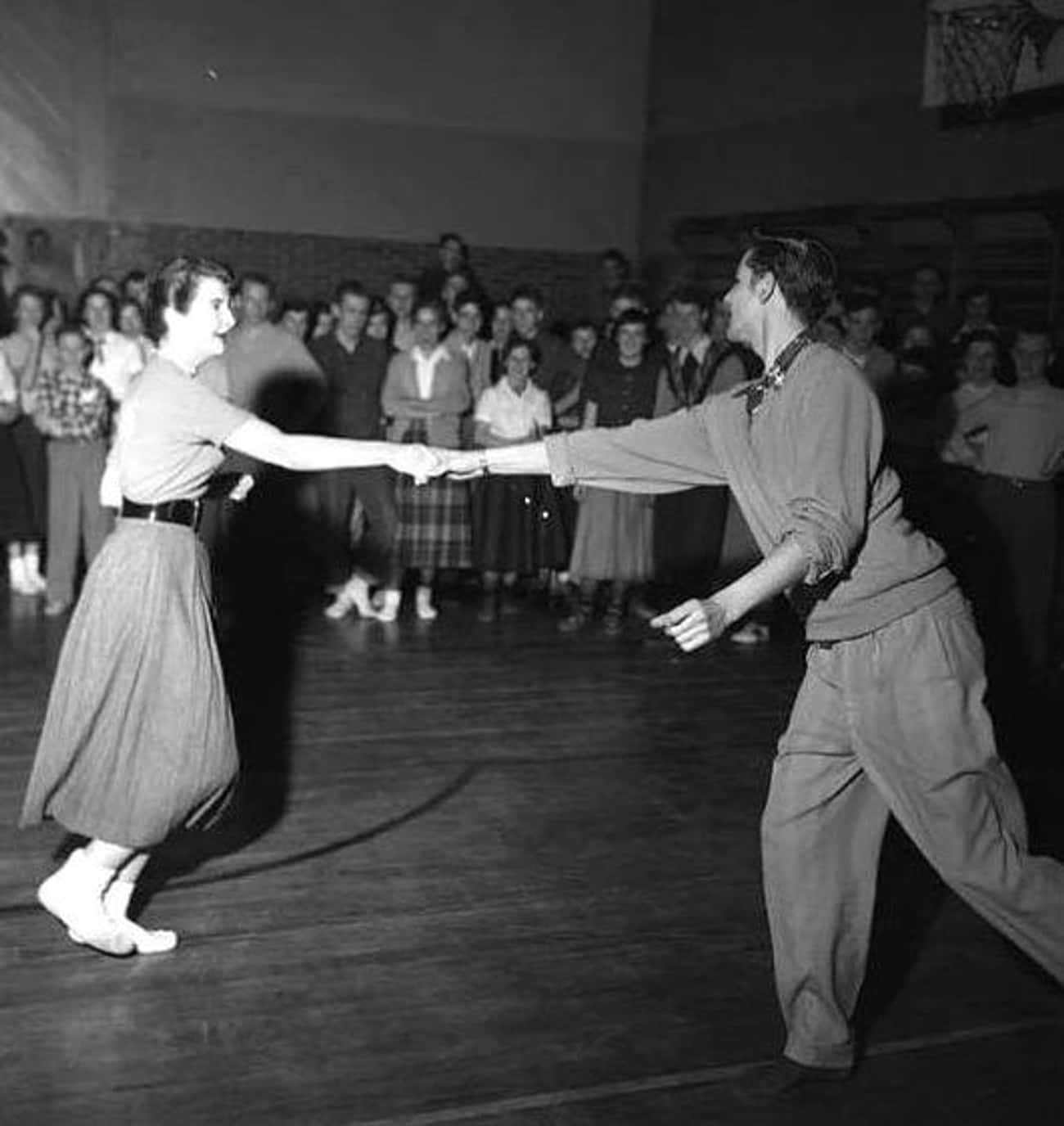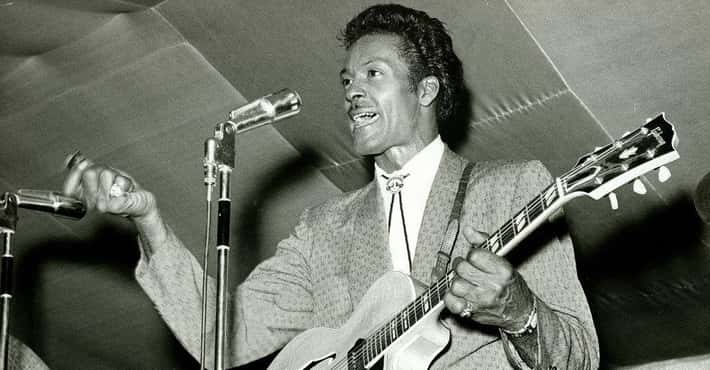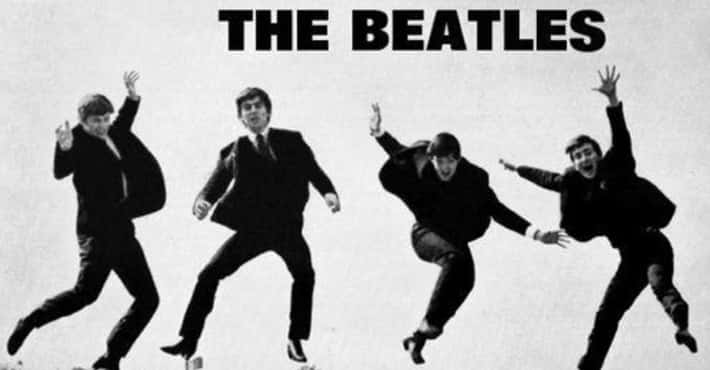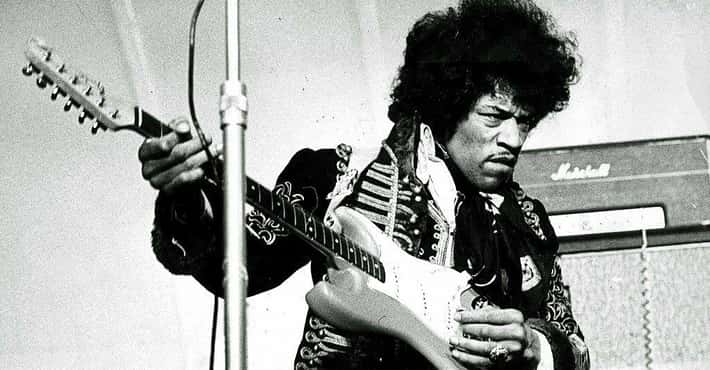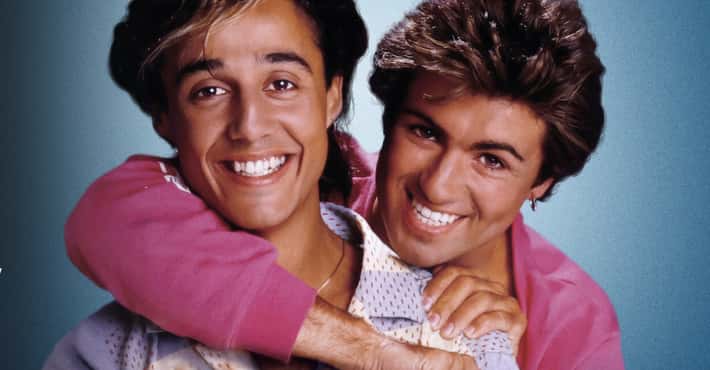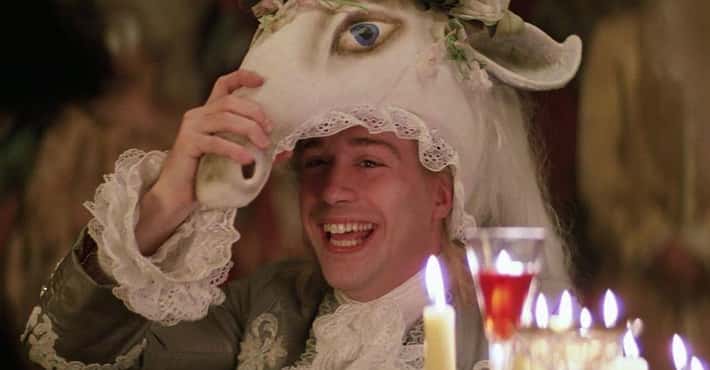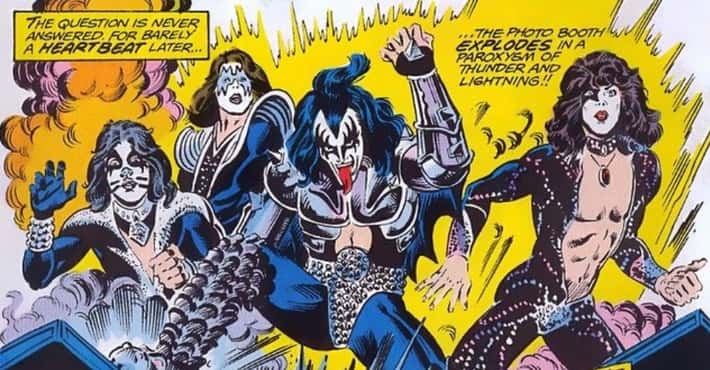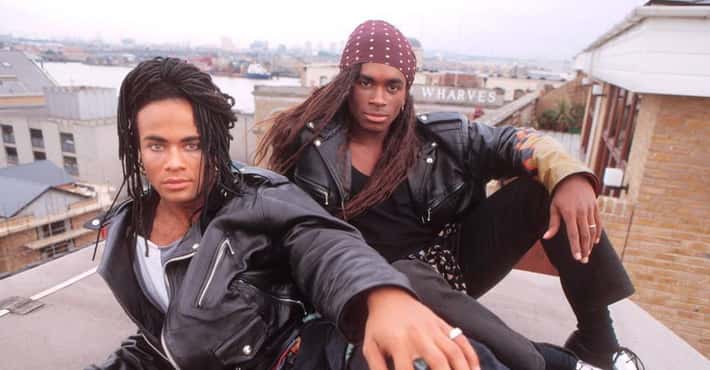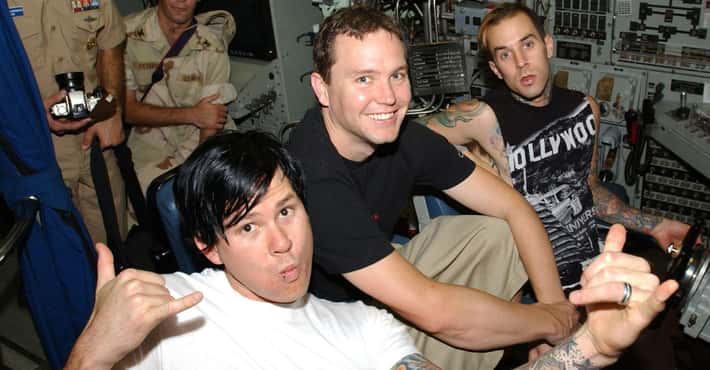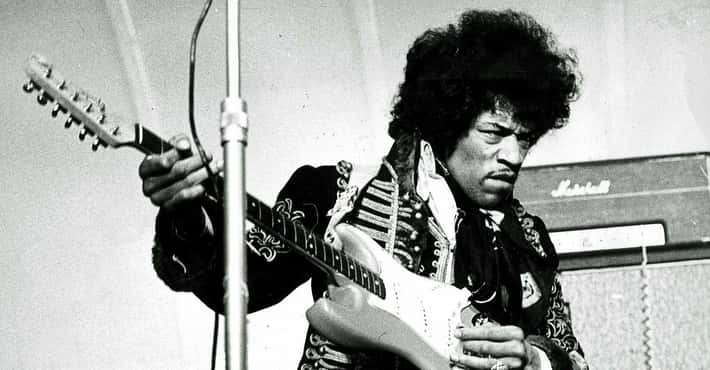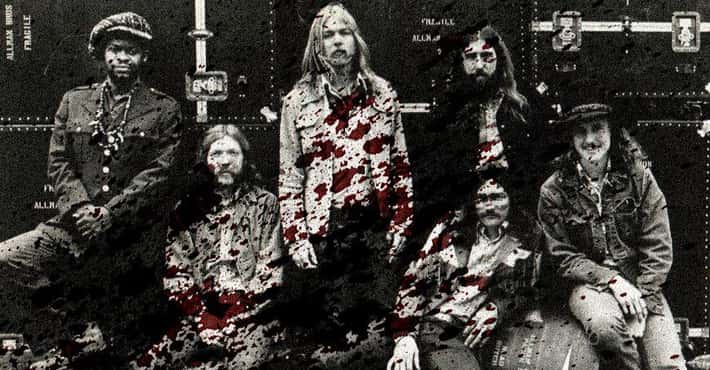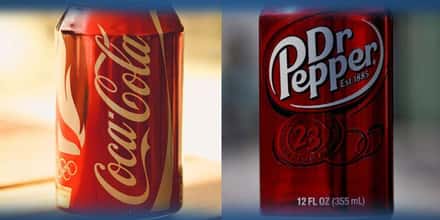The Story Of 'Rumble,' The Only Instrumental Ever Banned From The Radio
- Photo: Seattle Municipal Archives / Flickr / CC BY 2.0
The Song 'Sounded Like The Invitation To A Knife Fight…'
Many people in the late 1950s enjoyed live dance shows, AKA "hops," like American Bandstand and Milt Grant's House Party, a popular show in Virginia. In January 1958, Wray and his band, the Wraymen (later Ray Men), performed for House Party, and host Grant asked them to play a type of slow rock melody and line dance known as a stroll. "I just made up something on the spot, because I didn't know any stroll tune," Wray remembered.
As the drummer picked up a beat, Wray joined in with three chords. The band kept the song instrumental, which wasn't unheard of at the time, but the tune became completely original when Wray's brother Ray stuck the microphone into the guitar amplifier to create a gritty, much louder sound.
Wray recalled:
The speakers are rattling because they can't take that heavy playin', they're small, and I'm playin' really hard, see? So they're rattlin' all over the place and these kids started swarming, rushin' to the stage... My brother Doug got off the drums and started laughin' his a** off. He said, 'Y'know, you've been playin' here all f*ckin' night and these kids haven't been payin' a bit of attention, and now yer playin' this thing and they're going completely apesh*t.' We played it about four or five times. So Milt smelled a dollar and tells Ray, 'We gotta find a studio.'
Knowing how greatly the song affected the late 1950's music scene, Guitar Player editor Michael Molenda envied those in the audience that night who were able "to hear that big, distorted, evil ferocious chord for the first time," but they weren't the only ones captivated by Wray's new sound. "Its ragged, ominous chords, overdriven and dragged to a crawl, sounded like an invitation to a knife fight," a Rolling Stone writer would later claim. "Sure, 'Rumble' might seem... simple to play, but attempt to replicate the precise feel of it and you lose," noted Cub Koda.
Wray Punched Holes In The Speakers With A Pencil To Recreate The Rawer 'Live' Sound
Knowing they had a potential hit on their hands, Wray and his band found a studio to record "Rumble." According to Wray, they ended up in a room that "wasn't even a recording studio - they recorded politicians' speeches. A one-track Grundig tape recorder. Fifty-seven dollars, that's all it cost to record it." When the band began playing, however, Wray realized the sound wasn't right. "When I tried to remember the sound that made those kids scream, I missed the distortion right away," Wray recalled. "The sound was too clean - at the gig the amps were jumping up and down, burning up with sound."
Much to the dismay of his fellow bandmates with whom he shared the equipment, Wray tore the cover off the amplifier in an attempt to create a grittier sound. "I started experimenting, and I punched holes in the speakers with a pencil, trying to re-create that dirty, fuzzy sound I was getting onstage," Wray said. "And on the third take, there it was, just like magic."
After the song was released on March 31, 1958, Wray's sound invention came to be known as "fuzz tone" and was adopted by many artists, including Jimi Hendrix, who prominently displayed the sound in "Foxy Lady," and the Rolling Stones, who used fuzz on "(I Can't Get No) Satisfaction." Fuzz tone changed the music world so greatly, modern guitarists can create a similar sound using devices specifically made to duplicate the effect.
- Photo: Ross Dunn / Flickr / CC BY-SA 2.0
The Track Was Banned On The Radio In A Number Of Cities For Fears It Would Incite Riots
According to historian Dan Del Fiorentino, Wray's guitar "added more of a zing, more of a delinquency, if you will, to rock 'n' roll." Having recently survived WWII and looking for comfort and consistency in traditional values, Wray's sound upset many people. In a world of adults disproving of teenagers and their desire to be individuals, possibly after indulging in what was considered juvenile delinquency, Wray's music didn't fit in.
"Fifties rock was pretty clean, and you've got this guy - he's got a leather jacket, he looks scary - and all of a sudden he plays this loud chord that practically tears your eyebrows off your face," Guitar Player editor Michael Molenda recalled. "It was extremely aggressive, and it kind of paved the way for the next level of rock 'n' roll."
Because of the extreme backlash to both teen culture and "Rumble," disc jockeys at several radio stations across the US didn't want anything to do with the song. Despite having no lyrics, some believed the raw power of the song would cause young people to riot and become juvenile delinquents who rebelled against social norms. DJs in New York City and Boston refused to play "Rumble" on their stations, making the song the only instrumental ever banned in the US. Others decided playing the song was acceptable but had problems with the threatening-sounding title. Even Dick Clark allowed Wray to play the song on American Bandstand but refused to introduce the tune by using its name the first time Wray appeared on the show.
'Rumble' Became A Flashpoint In The Ongoing Late-'50s Movement To Scrub Rock 'N' Roll From The Airwaves
With more teenagers around than ever before, many adults in the 1950s became wary of the values and actions of America's young people. Although offensive behavior carried out by juvenile delinquents did increase during this time, many fears about what teenagers were capable of had no basis in reality. In order to combat their anxiety, older generations blamed music, movies, and comic books for teens' transgressions. A 1960 public opinion poll claimed only world peace and national defense were more important than dealing with juvenile delinquents.
Partly due to Bill Haley's "Rock Around the Clock" being used in the 1955 movie Blackboard Jungle, a film about dangerously rowdy high schoolers, rock music became associated with volatile action. Theaters in some states banned the film completely, while others continued to screen the movie but turned off the sound when the song played. By the time "Rumble" came out in 1958, many Americans believed it was the perfect example of the loud, objectionable sounds that defined rock music and used it as a focus for the efforts against the genre.
Columbia Records refused to record or promote artists who played rock they didn't like. Other artists, like bandleader Mitch Miller, spoke out against the effect they believed rock had on music and its audience. The Mutual Broadcasting System also refused to have anything to do with rock in 1958 and included "Rumble" in their admonishment of the genre.
- Video: YouTube

Wray’s Ultra-Loud Style Developed Out Of His Own Partial Deafness
As a child, Wray contracted measles and it caused him to suffer from hearing problems for the rest of his life. While serving in the army in the early 1950s, he contracted tuberculosis, which led doctors to remove one of his lungs to save his life.
Now partially deaf and having only one lung, doctors recommended Wray spend the rest of his life taking it easy. "And I said, 'Well there's a mightier power than you that's gonna tell me I can't go out and play my music,'" Wray remembered. "Ever since I went on the operating table, it's like this Link Wray character that was in the service [perished] and another Link Wray was reborn. Because things started happening to me. God appears in front of me in the hospital. God zaps this here "Rumble" in my head and this character called Link Wray is born."
Wray found a way to work his physical ailments into his music style. "I knew I couldn't sing, because I had a lung out," he said about his decision to play instrumental music. Wray also discovered his problems with deafness had a hand in his musical evolution, forcing him to develop a loud sound that he could hear.
"I found out with "Rumble," volume meant everything to me," Wray recalled. "Scotty Moore playin' behind Elvis was very quiet 'cause they didn't mike his amplifier - it was Elvis's voice. My music was very loud from the start, when Ray stuck the microphone into my amplifier. So right from day one, my music was supposed to be loud. It wasn't supposed to be quiet like Elvis."
- Photo: Fred Fehl / Wikimedia Commons / Public Domain
A Producer’s Stepdaughter Allegedly Came Up With The Title 'Rumble' Because Its Rough Sound Reminded Her Of 'West Side Story'
Before Wray titled his creation "Rumble," he called it "Oddball." The less threatening name didn't help the song's success, however, and several major labels turned it down, apparently turned off by its raw sound. Eventually, Wray's demo made its way to Cadence Records and into the hands of Archie Bleyer. Although Bleyer didn't like it, he gave the record to his daughter, Jackie, to play during a party. According to legend, the teens in attendance all loved the song and after some pestering, Jackie convinced her father to release it.
Stories also claim the song's name change to "Rumble" came as a result of Jackie's imagination. The song reportedly reminded her of a tune that might play during a street fight, likely thanks to West Side Story, which was a popular Broadway musical at the time. The stage production featured a knife fight scene set to music called "The Rumble," and Jackie allegedly thought the term was fitting of the song. "Rumble, schmumble, who cares, as long as it's a hit?" Bleyer reportedly said. Other stories, however, claim the title came from the minds of the Everly Brothers.
- Video: YouTube

Pete Townshend Said, 'If It Hadn’t Been For Link Wray… I Would Have Never Picked Up A Guitar'
"If I could go back in time and see any band, it would be Link Wray and the Wraymen," Neil Young said. Many other musicians, especially guitarists, feel the same. Years before punk or metal began to circulate, many aspiring music stars heard "Rumble" and claimed it changed their lives, including Jeff Beck, the Edge, and Bruce Springsteen. "The first time I heard 'Rumble,' I was like, 'that's something that has profound attitude,'" recalled Jimmy Page, who has a visceral reaction to the song in the documentary It Might Get Loud.
According to the Black Keys' Dan Auerbach, the effect Wray had on music is nearly incomparable. "I don't remember exactly where I first heard him. But as soon as I started to hear it, I was trying to buy everything I could," he remembered. "He was the first to ever have aggression in guitar music. Nobody had ever been menacing before, they were all frilly and melodic and he was just menacing... it was a whole new thing. There would be none of us without Link Wray."
Many artists credit Wray with inspiring them to pursue their interests in music. "He is the king," Pete Townshend said. "If it hadn't been for Link Wray... I would have never picked up a guitar."
Iggy Pop considers Wray one of his biggest influences, once telling Stephen Colbert, "I was in the student union of this major university and I heard this music... and it was called "Rumble," and it sounded bad... I left school emotionally at that point." He also credits the song for inspiring him to pursue music. "'Rumble' had the power to help me say 'F*ck it, I'm gonna be a musician," Pop recalled.
- Photo: Dxede5x / Wikimedia Commons / CC BY 3.0
The Power Chord Popularized By 'Rumble' Was Cited As A 'Missing Link' Between Early Blues/R&B And The Hard Rock And Punk That Would Later Emerge
According to historian Dan Del Fiorentino, "Without the power chord, punk rock and heavy metal would not exist." Power chords are a combination of the 5th and root notes of a major scale and can give songs a loud, forceful sound; think Black Sabbath's "Iron Man." Wray is credited with creating these chords after using them in "Rumble."
"Except for rockabilly and country, at that time R&B, doo wop, city rock and roll was all saxophone solo driven," Richard Gottehrer of the Strangeloves remembered. "To hear a guitar played like that was outstanding, the power... of it. Link came along and the guitar began to take over." Stevie Van Zandt also admired Wray's creation of the power chord, claiming it was "the toughest chord change in all of rock 'n roll."
Wray's influence on music was further demonstrated when the Library of Congress added "Rumble" to the 2008 National Recording Registry of "culturally, historically or aesthetically significant" recordings. They also included an essay which called Wray "the 'missing link' in rock guitar, the connecting force between the early blues guitarists and the later guitar gods of the 1960s (Hendrix, Clapton, Page). He's the father of distortion and fuzz, the originator of the power chord and the godfather of metal."
- Video: YouTube

Wray's Sense Of Style Also Added To The Allure Of 'Rumble' And Made Him Cool
Not only did Wray's music seem threatening to some people in the 1950s, but his style did as well. On stage, he wore a leather jacket with chains and a popped collar. He donned black pants and heavy boots, styled his hair into a slicked-back pompadour, and was known to carry a switchblade, which he used to scare people if he felt it necessary. To top off his tough-guy stage presence, Wray often wore sunglasses, even if it was night and even if he was indoors. "Who else in rock 'n' roll had a leather jacket and was smoking, with sunglasses on in the middle of the night," recalled historian Dan Del Fiorentino. "That was him."
Despite his look, it's possible Wray's personality wasn't as hard as it came across. According to stories, he was a vegetarian, was devoted to taking vitamins, loved Star Trek, and reportedly wore sunglasses since measles weakened his eyes as a child. It is true he embraced his mean exterior, though possibly not in the way one might think, once telling a reporter, "You can be wild, but not evil... There's an evil, and there's wild. And I was wild."
- Photo: Uncredited / Wikimedia Commons / Public Domain
'Rumble' Came Out Of Wray Wanting His Own Sound
In 1954, after his stint in the army, Wray formed a band with his brothers. They played country music, and although they played backup for several stars and recorded a few songs, Wray found he wasn't that into the genre. "I never did care for country stuff that much," he recalled. "The drummer playing very light with brushes, the steel guitar waa waa waa behind it. It was too boring - like the jazz, I quit because it was so f*cking boring."
After the band broke up, Wray began searching for his own sound. He found inspiration in rockabilly and became a fan of more energetic acts like Curtis Gordon. Wray still got together with his brothers to perform and used these gigs in front of live audiences to experiment. "I just started makin' up my own little musical thing there - jazz up 'Tennessee Waltz,' have Doug play fast," Wray said. "Just play all the country songs with a beefed-up sound - I guess you could call it rock and roll, but we didn't know we were playin' it."
While recuperating in the hospital after having a lung removed, Wray saw Elvis Presley perform on television and suddenly his musical path became clear. "Rock and roll was brand new. Elvis brought it to the world," he remembered. "This is the way I wanted to go."
Wray Identified With The Blues Because He Suffered Early Hardships And Prejudice
Wray and his brothers saw hardship from an early age, as they grew up poor in North Carolina. "We were just born in a little hut - no floors in our house, just dirt, no electricity, just kerosene lamps and candles," he recalled. His mother was Shawnee and Wray often lived in fear of prejudice. "I was from the poorest part of North Carolina - Dunn, where I was not white and it was not safe," Wray remembered. "The Klan would come with their capes and burning crosses... We'd hide underneath the bed, hopin' they wouldn't come for us."
Despite his surroundings, Wray found comfort in music and enjoyed listening to it from his neighbors' radios and playing around with his brother's guitar. While practicing on the porch one day, an African American circus performer named Hambone approached and offered to tune Wray's guitar. "He tuned it up, started playin' bottleneck, man, and singin' this blues. I just fell in love with the music," Wray recalled.
Although he would go on to learn to play jazz and country, the blues and its evolution into rock would always stick with Wray because of its ability to turn hardship into music. Hearing Hank Williams helped him to realize this, and Wray remembered, "He got the pain... I loved his voice, the way he was in pain. I could tell through those moans, man, that he really meant it... And he was singin' out of pain... It just a struck a nerve in my heart."
- Photo: user uploaded image
Wray Claims The Backlash Against 'Rumble' Ultimately Made It More Popular
Despite being banned and facing many angry Americans who feared the influence of its sound, "Rumble" found its way into the Top 40 and hit its peak at No. 16. It was a big enough hit that it stayed in the Top 40 for more than two months. In its prime, the song reportedly sold over one million copies.
According to Wray, some of the song's success came from the controversy it created. He believed radio stations banning the song, others refusing to share its name, and all the hype it received for allegedly being riot-inducing helped bring "Rumble" attention and "just made it sell more." This may have some truth to it, but judging from how it's revered by other famous rock stars, it's likely the song would have changed rock music forever, even if it wasn't a commercial success.
- Photo: Pulp Fiction/Miramax Films
The Song Remains Ubiquitous In Film, TV, Commercials, And Pop Culture
Even if you think you've never explicitly listened to "Rumble," you've probably heard it hidden in the background of a movie or television show. Quentin Tarantino used the song to create tension between John Travolta and Uma Thurman as they share a milkshake in Pulp Fiction. Roland Emmerich evoked the rebelliousness of "Rumble" in Independence Day as it played in the background of the diner where locals tease Randy Quaid about his alleged alien encounter. Ted Demme knew the song also oozes gritty coolness and included "Rumble" in Blow in a scene in which Johnny Depp and some bikini-clad girls use weed on a beach.
The song has also shown up in television shows, including the pilot episode of The Sopranos and a surf-centric episode of Spongebob Squarepants. "Rumble" has even crossed over to video games and commercials, appearing in StarCraft II and ads for Ford Focus and Jack Daniels. According to Jack Daniels' global brand director Phil Epps, "We wanted a track that is as iconic and distinctive as our whiskey... The track has been credited with facilitating the emergence of punk and heavy rock - and with that use of the power chord, it felt like a distinctive and timeless choice of music to accompany what we believe to be a great script."
- Photo: Andre Engels / Wikimedia Commons / CC BY 2.0
In 2018, 'Rumble' Became One Of The First Six Singles Inducted Into The Rock & Roll Hall Of Fame
Despite many artists citing it as an inspiration and crediting the song's help in the evolution of rock and roll, "Rumble" wasn't inducted into the Rock & Roll Hall of Fame until 2018. It was part of a group of songs now recognized as important singles in rock history, a newly created category that year. Also honored were songs like "Born to Be Wild" from Steppenwolf and Chubby Checker's "The Twist." One year later, the Grammy Hall of Fame gave "Rumble" the same recognition.
For Dan Auerbach of the Black Keys, however, Wray also deserves to be inducted as an artist, saying:
I just know that if a place is calling itself the rock and roll anything, it should include Link Wray. He sort of invented rock and roll, and he's the link between the Native American and the rock and roll drumbeats - which is where the rock and roll drumbeat comes from. That's been misreported for decades. I think there's just a lot of things that need to be straightened up, and Link Wray is part of that.
In an effort to persuade the Hall of Fame, the Wray family allowed Auerbach to put out a previously unreleased Wray singled called "Son of Rumble" through his record label in 2017.


